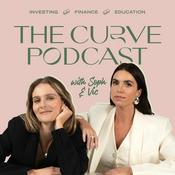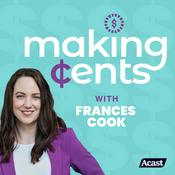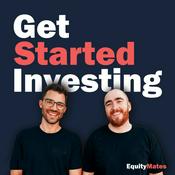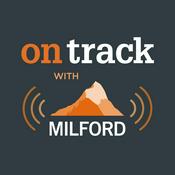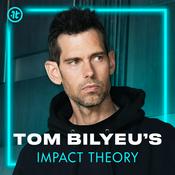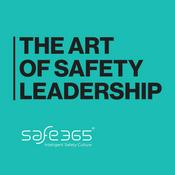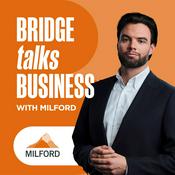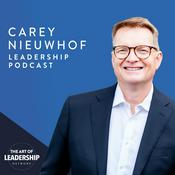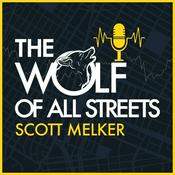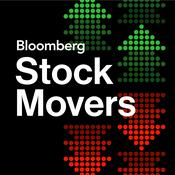60 episodes
- Here are three questions that arise from this Change Signal conversation with Neil Hoyne:
How is data really used in your organization?
How much uncertainty can your culture comfortably handle?
And what ideas are your people quietly shelving because they don’t think anyone will listen?
If you lead change in a large organization, you already know the promise of being “data-driven” often runs into the reality of politics, incentives, and human behaviour. Neil Hoyne — author, analyst, and Google’s Chief Strategist — joins me to explore how data can help transformation, and also how it can unintentionally slow it down.
We dig into the difference between using data to learn and using it to justify decisions already made. Neil explains why intuition isn’t the opposite of data, but a compressed form of expertise that deserves to be surfaced and tested.
We also talk about what really shapes a data-driven culture: the decision standards leaders set, the level of uncertainty they’re willing to tolerate, and who takes responsibility when experiments fail.
If you’re navigating change management, digital transformation, or complex initiatives where data plays a starring role, this conversation offers a practical, human way to think about decisions, experiments, culture, and influence — so your organization can move faster and learn smarter.
Change Signal. Where transformational change leaders seek and find modern change wisdom. Cut through the blather, the BS, and the noise to find the good stuff that works.
***
WHEN YOU’RE READY
🎧 A new episode every week (and sometimes two!)
The Change Signal newsletter. Short, practical, weekly
***
CONNECT
💼Connect on LinkedIn
***
SAY THANKS
💜Leave a review on Apple Podcasts
💚Leave a review on Spotify - Here are three provocative questions that arise from this Change Signal conversation with Emily Moore:
Who’s missing from your system map?
What are you rushing to solve?
And what is resistance actually trying to protect?
If you lead change in a big organization, you already know the neat diagrams rarely survive contact with reality. Emily Moore — engineer, educator, and longtime industry leader — joins me to explore how systems thinking becomes far more useful when we stop pretending the world is tidy.
We dig into the surprising truth that most “systems maps” forget the most important element: the people who hold influence, create friction, or quietly keep things running. Emily shows why the real work of change begins when you sit with ambiguity a little longer than feels comfortable, resist the urge to leap to solutions, and allow humility to do some heavy lifting.
We also talk about resistance — why it’s not just inevitable but essential. Emily argues that vocal laggards often reveal leverage points the formal org chart hides.
If you’re navigating complex transformations, leading change management initiatives, or trying to make progress inside tangled systems, this conversation will help you see your organization — and your role in it — with fresh eyes.
Change Signal. Where transformational change leaders seek and find modern change wisdom. Cut through the blather, the BS, and the noise to find the good stuff that works.
***
WHEN YOU’RE READY
🎧 A new episode every week (and sometimes two!)
The Change Signal newsletter. Short, practical, weekly
***
CONNECT
💼Connect on LinkedIn
***
SAY THANKS
💜Leave a review on Apple Podcasts
💚Leave a review on Spotify - Here are three provocative questions that arise from this Change Signal conversation with John Anthony:
Are you engaging people before you try to influence them?
What resistance are you avoiding that you should be exploring?
And how do you know whether you’re dancing with someone… or wrestling?
John Anthony joins me to unpack why so many change conversations in large organizations stall, even with experienced leaders at the helm. He draws from motivational interviewing to show how change works best when it’s done with people, not to them.
We talk about why your first job is positioning yourself as a supporting partner, not a persuader. JA explains the power of OARS — open-ended questions, affirmations, reflective listening, and summaries — as a simple way to diagnose whether you’ve actually engaged someone before asking them to move.
We also explore resistance as a source of insight rather than something to avoid. JA makes a compelling case that paying attention to the discord is what shifts people from outright cynicism into genuine consideration.
If you lead transformation, change management, or complex initiatives, this conversation with John Anthony offers practical tools and a more human way to navigate the messy middle of change.
Change Signal. Where transformational change leaders seek and find modern change wisdom. Cut through the blather, the BS, and the noise to find the good stuff that works.
***
WHEN YOU’RE READY
🎧 A new episode every week (and sometimes two!)
The Change Signal newsletter. Short, practical, weekly
***
CONNECT
💼Connect on LinkedIn
***
SAY THANKS
💜Leave a review on Apple Podcasts
💚Leave a review on Spotify - Three questions sit at the heart of this Change Signal episode:
How much responsibility for change is owned throughout your organization?
How much room is there for more change?
How good are your mechanics at change?
In this solo anniversary episode of Change Signal, I reflect on a year of conversations, experiments, and learning — and make the case that change management is a tired label for the realities leaders now face.
I introduce three core drivers of modern change mastery: claimed agency, real capacity, and technical excellence. I explore why so many transformation efforts stall even when the plans look immaculate, and why ownership, space, and craft matter more than control.
Along the way, I reframe the experience of change itself — from kitchen fires and fast-food efficiency to more nourishing, adaptive systems that can flourish under pressure.
If you’re leading change in complex environments and wondering why the old playbooks keep falling short, this episode offers a clearer orientation for the work ahead.
Change Signal. Cut through the blather, the BS, and the noise to find the good stuff that works in change. If you’re a transformational leader seeking modern change mastery, you’re in exactly the right place.
***
WHEN YOU’RE READY
🎧 A new episode every week (and sometimes two!)
The Change Signal newsletter. Short, practical, weekly
***
CONNECT
💼Connect on LinkedIn
***
SAY THANKS
💜Leave a review on Apple Podcasts
💚Leave a review on Spotify - Here are three provocative questions that arise from this Change Signal conversation with Simone Ahuja:
Are you solving the real problem or just the first one?
What constraint might actually spark creativity?
And who’s missing from the table when you design change?
In this episode, Simone Ahuja — innovation strategist, intrapreneurship champion, and longtime student of jugaad — joins me to explore how change really happens inside large, complex organizations. She shows why the most valuable innovations don’t come from big budgets or big teams, but from leaders who know how to work with constraints, stay fluid in their approach, and widen the circle of who gets to shape the solution.
We talk about why so many change projects stall before they even begin, often because teams are solving the wrong challenge or operating inside systems that resist anything unfamiliar. Simone offers a practical, grounded way forward: think smaller, go earlier, and design experiments that create momentum instead of overwhelm.
If you lead transformation, change management, or innovation work — and want tools that work in real organizational life — this conversation with Simone is going to be useful, surprising, and energizing.
Change Signal. Where transformational change leaders seek and find modern change wisdom. Cut through the blather, the BS, and the noise to find the good stuff that works.
***
WHEN YOU’RE READY
🎧 A new episode every week (and sometimes two!)
The Change Signal newsletter. Short, practical, weekly
***
CONNECT
💼Connect on LinkedIn
***
SAY THANKS
💜Leave a review on Apple Podcasts
💚Leave a review on Spotify
More Business podcasts
Trending Business podcasts
About Change Signal
If you’re leading change in organizations, this will be your favourite podcast.
Change is harder than ever. Transformation is more complex, unpredictable and overwhelming than it’s ever been. Change Signal cuts through the noise to find the good stuff that works.
Michael Bungay Stanier, author of The Coaching Habit and organizational transformation student for thirty years, talks to the best thinkers, senior leaders, and experienced practitioners in the world of change, to find what works, what doesn’t, and what to try instead. With Change Signal as your guide, you’ll be more efficient and less overwhelmed, and your change projects will more likely succeed.
Change Signal: Where we cut through the blather, the BS, and the noise to find the good stuff that works.
Sign up for weekly updates at TheChangeSignal.com
Podcast websiteListen to Change Signal, Friends That Invest and many other podcasts from around the world with the radio.net app
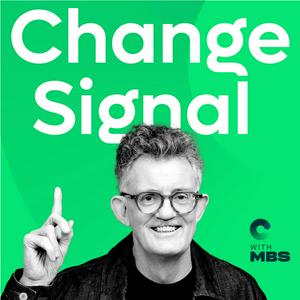
Get the free radio.net app
- Stations and podcasts to bookmark
- Stream via Wi-Fi or Bluetooth
- Supports Carplay & Android Auto
- Many other app features
Get the free radio.net app
- Stations and podcasts to bookmark
- Stream via Wi-Fi or Bluetooth
- Supports Carplay & Android Auto
- Many other app features


Change Signal
Scan code,
download the app,
start listening.
download the app,
start listening.







